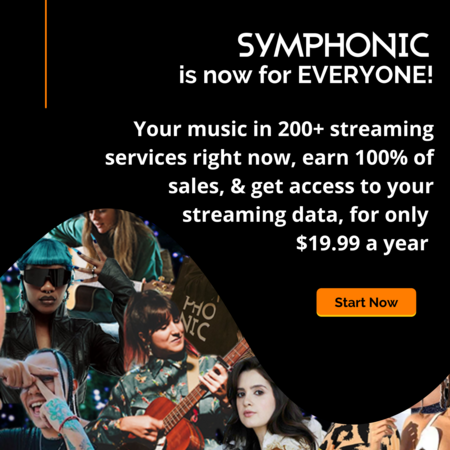
Is My Record Label Also My Publisher?
As the years go by, creators have more and more freedom over how they want to distribute their music and with whom. Whether you’ve signed a record label deal, you’ve hired a publisher or you work with an independent distributor like Symphonic, it’s important to understand what you’re entitled to as an artist. Look no further, we’re here to break it down. Here’s what you need to know…
Is My Record Label Also My Publisher?
Let’s Talk Record Labels…
A record label is the entity responsible for releasing your master recordings to the public on retailers, streaming services, radio, etc.. Major parts of a record label’s work involve promotion, marketing your music, landing sync placements and more. In addition, major labels often pay out advances to cover the recording costs for the album or single in addition to paying to produce physical releases like CDs or LPs.
(Contrary to popular belief, an advance is NOT free money. — Learn the truth about advances here.)
Think of it like this: A record label is to master recordings what a publisher is to musical compositions.
It’s actually not uncommon for some record labels, especially the majors, to launch publishing divisions in order to exercise more control over the music they release. By acquiring administration rights for the musical compositions (as well as whole or partial ownership), they are able to exploit compositions for licensing opportunities, register songs, collect all publishing-related royalties, etc.
(For example, think Warner Chappell Music; the publishing division of Warner Music Group, or Universal Music Publishing Group; the division of Universal Music Group.)
Publishers
While a record label is only responsible for the recordings songs that they control, a publisher is responsible for the underlying music composition itself, which includes covers by other artists that may have been released to physical or streaming formats.
Music publishers handle the administration of musical compositions. They collect royalties and licensing fees, seek out sync deals for TV and film, register copyrights, negotiate licenses, and more. Similarly to labels, publishers can also involve advances within their publishing deals. Typical publishing deals can include administration only deals, full publishing deals, or co-publishing deals.
Publishing Royalties
The two most common music publishing royalty types, central to any independent songwriter’s income, are performance royalties and mechanical royalties.
So, is my record label my publisher or not?
Short answer is, maybe.
Your record label is not always your Publisher, unless the record label:
- establishes itself as the publisher of your songs in your label contract,
- registers your songs in royalty collection societies, and
- collects the publishing royalties and distributes them to you.
If your record label claims to be the publisher but you have never received any publishing royalties (performance, mechanical, etc.) from your label or from your chosen PRO, then it’s time to confront your record label about this issue and get some clarity.
In Conclusion…
We hope this post has made the relationship between record labels and publishing a little easier to digest. With each service, you get different benefits as an artist. Depending on what you need, one path may be more beneficial than the other. — Regardless of what you choose, you are rightfully owed royalties for your published work. It’s important you understand what you’re owed and how to get it. Otherwise, you may be missing out on hard earned royalties and opportunities. Don’t just sit back and let corporate entities take control of your life. Get involved, do your research, and work with a team that has your back.
Good luck!


